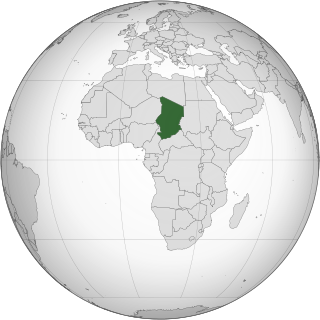
Lesbian, gay, bisexual, and transgender (LGBT) persons in Chad face legal challenges not experienced by non-LGBT residents. Both male and female forms of same-sex sexual activity are illegal in the country. Before the new penal code took effect in August 2017, homosexual activity between adults had never been criminalised. There is no legal protection against discrimination based on sexual orientation and gender identity.

Lesbian, gay, bisexual, transgender, Queer, asexual and intersexual (LGBTQAI+) persons in the Central African Republic face legal and social challenges not experienced by non-LGBT residents. Both male and female same-sex sexual activity is legal in the Central African Republic, but LGBT persons face stigmatization among the broader population.
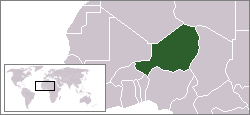
Lesbian, gay, bisexual, and transgender (LGBT) people in Niger face legal challenges not experienced by non-LGBT residents. Same-sex sexual activity is legal, however LGBT persons face stigmatization among the broader population.
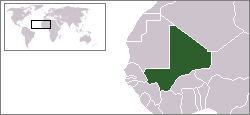
Lesbian, gay, bisexual, and transgender (LGBT) people in Mali face legal and societal challenges not experienced by non-LGBT residents. Although same-sex sexual activity is not illegal in Mali, LGBT people face widespread discrimination among the broader population. According to the 2007 Pew Global Attitudes Project, 98 percent of Malian adults believed that homosexuality is considered something society should not accept, which was the highest rate of non-acceptance in the 45 countries surveyed.

Lesbian, gay, bisexual, and transgender (LGBT) people in the Democratic Republic of the Congo (DRC) face discrimination and legal challenges not experienced by non-LGBT residents. Same-sex sexual activity is legal for both males and females in the Democratic Republic of the Congo, although LGBT individuals may still be targeted for prosecution under public indecency provisions on occasion.

Lesbian, gay, bisexual, and transgender (LGBT) people in Nigeria face severe challenges not experienced by non-LGBT residents. LGBT rights are generally infringed upon; homosexual activity is illegal in Nigeria and punishable by up to 16 years of prison in the conventional court system. There is no legal protection for LGBT rights in Nigeria—a largely conservative country of more than 225 million people, split between a mainly Muslim north and a largely Christian south. Very few LGBT persons are open about their sexual orientation, as violence against them is frequent. According to PinkNews, Nigerian authorities generally target the LGBT community. Many LGBT Nigerians are fleeing to countries with progressive law to seek protection.
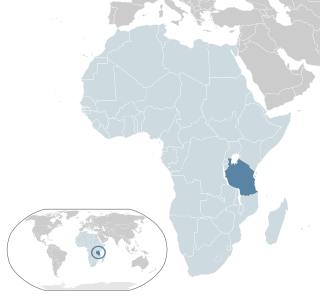
Lesbian, gay, bisexual, and transgender (LGBT) people in Tanzania face severe challenges not experienced by non-LGBT residents. Homosexuality in Tanzania is a socially taboo topic, and same-sex sexual acts are criminal offences, punishable with life imprisonment. The law also criminalises heterosexuals who engage in oral sex and anal intercourse.

Lesbian, gay, bisexual, and transgender (LGBT) persons in Benin face legal challenges not experienced by non-LGBT residents. Although same-sex sexual acts for both men and women are legal in Benin, homosexuals continue to face widespread persecution and are rarely open about their sexuality. They are also considered by many as deviants to the society, and homosexuality is often called a disease brought by white people to the country. LGBT persons additionally face stigmatization among the broader population.

Lesbian, gay, bisexual, transgender (LGBT) persons in Burundi face legal challenges not experienced by non-LGBT citizens. While never criminalized before 2009, Burundi has since criminalized same-sex sexual activity by both men and women with a penalty up to two years in prison and a fine. LGBT persons are regularly prosecuted and persecuted by the government and additionally face stigmatisation among the broader population.
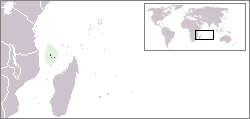
Lesbian, gay, bisexual, and transgender (LGBT) persons in Comoros face legal challenges not experienced by non-LGBT residents. LGBT persons are regularly prosecuted by the government and additionally face stigmatization among the broader population.
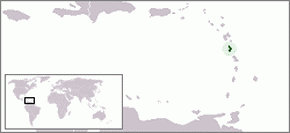
Lesbian, gay, bisexual, and transgender (LGBT) persons in Dominica face legal challenges not experienced by non-LGBT residents. Sodomy, also known as "buggery", is illegal for both heterosexuals and homosexuals. Dominica provides no recognition to same-sex unions, whether in the form of marriage or civil unions, and no law prohibits discrimination on the basis of sexual orientation or gender identity.

Lesbian, gay, bisexual, and transgender (LGBT) people in Madagascar face discrimination and legal challenges not experienced by non-LGBT residents. While same-sex sexual activity is legal among individuals above the age of 21, most civic liberties such as the rights to get married and adopt children are not afforded to LGBT individuals.
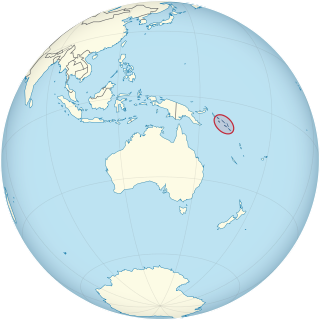
Lesbian, gay, bisexual, and transgender (LGBT) persons in Solomon Islands face legal challenges not experienced by non-LGBT residents. Male same-sex sexual activity is illegal, punishable by up to 14 years imprisonment, but the law is not enforced.
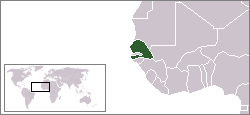
Lesbian, gay, bisexual, and transgender (LGBT) people in Senegal experience legal persecution. Senegal specifically outlaws same-sex sexual acts and, in the past, has prosecuted men accused of homosexuality. Members of the LGBT community face routine discrimination in Senegalese society.

Lesbian, gay, bisexual, and transgender (LGBT) persons in the Ivory Coast face legal challenges not experienced by non-LGBT residents. Both male and female same-sex sexual activity is legal in Ivory Coast, but same-sex couples and households headed by same-sex couples are not eligible for the same legal protections available to opposite-sex couples.
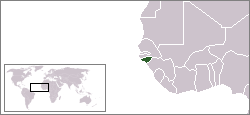
Lesbian, gay, bisexual, and transgender (LGBT) persons in Guinea-Bissau face legal challenges not experienced by non-LGBT residents. Same-sex sexual activity is legal in Guinea-Bissau, but same-sex couples and households headed by same-sex couples are not eligible for the same legal protections available to opposite-sex couples.

Lesbian, gay, bisexual, and transgender (LGBT) persons in Togo face legal challenges not experienced by non-LGBT residents. Both male and female same-sex sexual activity is illegal in Togo.
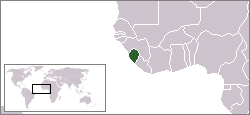
Lesbian, gay, bisexual, and transgender (LGBT) persons in Sierra Leone face legal challenges not experienced by non-LGBT residents. Male same-sex sexual activity is illegal in Sierra Leone and carries a possible penalty of life imprisonment, although this law is seldom enforced.

Lesbian, gay, bisexual, and transgender (LGBT) persons in Niue face legal challenges not experienced by non-LGBT residents. Male same-sex sexual activity is illegal in Niue, although there is no recent instance of it being actively prosecuted. Same-sex couples and households headed by same-sex couples are not eligible for the same legal protections available to opposite-sex married couples.

Lesbian, gay, bisexual, and transgender (LGBT) persons in Grenada may face legal challenges not experienced by non-LGBT residents. The penal code makes same-sex acts on Grenada proper illegal with a punishment up to 10 years in prison, it also does not address discrimination or harassment on the account of sexual orientation or gender identity, nor does it recognize same sex unions in any form, whether it be marriage or partnerships. Household headed by same-sex couples are also not eligible for any of the same rights given to opposite-sex married couples.




















